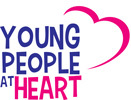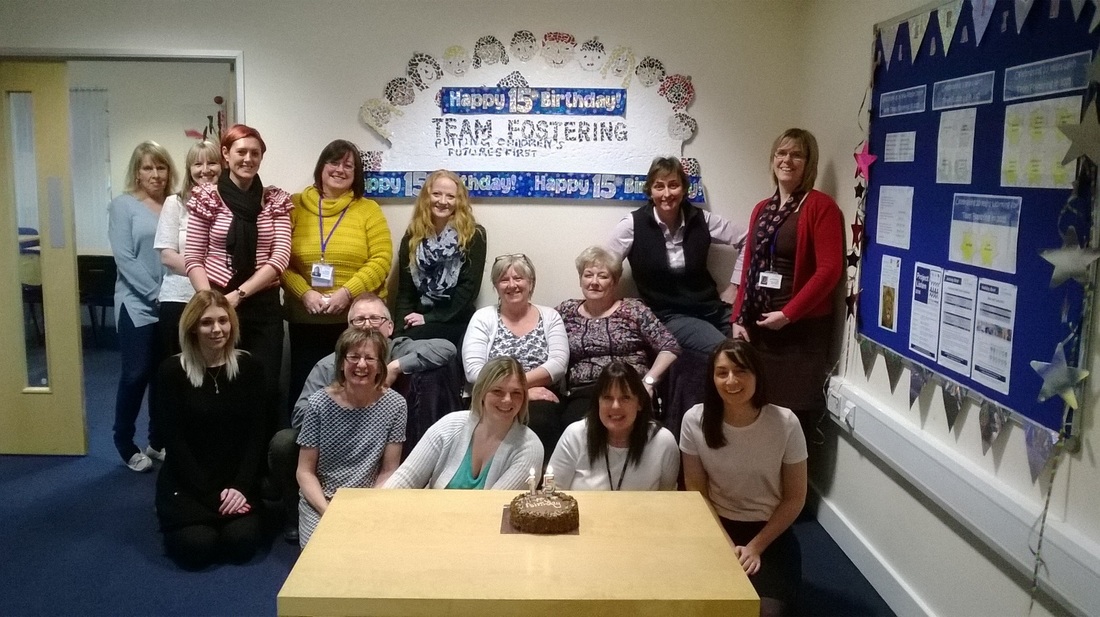 Young People at Heart recently approved another two foster carer households new to fostering, bringing the total number of foster care households to 12. Founder and Chief Executive Gary Cox said he was delighted to welcome the new foster carers into the Young People at Heart family. Both were single carers who brought skills and experience to the organisation that would undoubtedly benefit young people placed with them. Young People at Heart has another two families in assessment, both of whom had come to the UK from abroad and whose home languages are Spanish and Portugese respectively, adding to the diversity and skill set of the organsiation. Gary added that Young People at Heart welcomed enquiries from new and existing foster carers from all backgrounds and encouraged anyone interested in fostering to make contact, either through the website application form, the enquiry line 07518 173083 or by email at [email protected] Source: http://www.youngpeopleatheart.org  Christmas is always an interesting time of year… no less for that of our Foster Carers. Jo, a Foster Carer from our South region, tells us about her Christmas experiences… Christmas in Foster Land Christmas in my household has never been ‘normal!’ I was blessed with 3 children, all young adults now, but my son (23) has autism, ADHD & learning difficulties so life has been extremely unpredictable ever since his arrival! Whatever ‘normal’ is, it certainly doesn’t occur within a fostering household either! A happy time for many children is overshadowed by a complex array of emotions that are experienced by looked after children. The last few Christmas seasons have, for myself, my own children, my granddaughter & the children I foster, been extremely exciting, challenging & diverse, all at once! One Christmas, for example, I and my children had welcomed our first foster child exactly one week before Christmas day. She arrived, at just 6 years old, with a list of diagnoses as long as my arm! Nothing that I hadn’t experienced before but living with children who have complex disabilities, not to mention the additional challenges that accompany any looked after child, can be as exhausting as it is exciting. Looked after children, for example, have experienced loss, grief, rejection, heart ache, trauma, abuse, neglect and possibly many of these together along with emotions we can barely begin to comprehend. This particular child had severe autism, global developmental delay, severe speech and language disorder (she had no verbal communication skills), a restricted diet, oh, and how could I forget, a severe sleep disorder. We had already met, and fallen in love with this delightful little girl though, she had melted out hearts so rearranging Christmas to accommodate her needs was, we felt, a very small price to pay! So, that Christmas we kept everything quiet, calm & peaceful to allow her to settle and accept us before inviting other’s to our home. At the Christmas table was just myself and my adult daughter with a 3rd place set for our new little girl who was known to eat very little in food variety or, indeed, to even eat at the table. Knowing that she liked white meat but very little of the other traditional Christmas foods, we had placed her specialist high chair & a plate of turkey meat alone, none of the trimmings and none of the fuss. She had actually already been given her own favourite food for lunch earlier so there was no pressure for her to join us at the table. We made no fuss and ate our dinner quietly as she ran around the room making many of her unique vocal noises, she occasionally glanced over to see what we were doing and appeared to be suspiciously investigating the scene. To our enormous surprise, our cool, calm and almost aloof interpretation of Christmas dinner appeared to be a triumph as our own little Christmas miracle unfolded before us! She very quietly and gingerly approached the table, sat on her chair and gulped down her turkey before skipping off to resume her own private party and engage in activities that gave her pleasure, that is, running around and making lots of noise! We sat, aghast at the table, speechless yet secretly satisfied that, although it was very early days and a very small achievement, in her world, and ours actually, it was a huge achievement! We were delighted and felt that we had witnessed our own little Christmas miracle. Not much of a miracle you say? If you knew how difficult life can be for a looked after child then add in profound and complex disability then I think you would agree, a true ‘Christmas miracle!’ The next Christmas in our home was completely different again. We had, by this time welcomed two new arrivals to live as part of our family. We had a mother and her new baby girl arrive in our home just two days after her birth. This mother and baby placement, after a difficult start, had also stolen our hearts and by Christmas, despite knowing that they would be moving on eventually, were truly a part of our family. So, in the lead up to Christmas we excitedly dressed and decorated the house for the festive season with two exciting events to prepare for. One, to celebrate the birth of Jesus and all that this means to Christians, and two, to help with the planned move of mother, baby and baby’s father into a small flat nearby to live as an independent family unit in the community. As such, this had been a successful placement with a very positive outcome so there was much to celebrate. I personally felt that it was a privilege for me and my family to have supported this family and to share in a small part of their amazing life journey. Preparations for both events meant that it was a very busy but very exciting time. Christmas day itself, waking up with a baby in the house again was actually more fun for the adults I felt. So we allowed ourselves to indulge in the fun in the morning before sending both mother and baby off to join their own family for Christmas dinner. At the end of Christmas day, as we waited for our youngsters to return, it began to dawn on me that Christmas in our house hold would be celebrated in very different circumstances each and every year as we welcome very unique and diverse youngsters to our family home. This reflection on the future of Christmas in our home was both exciting and daunting. I think it’s fair to say though that I and my family thrive on meeting new people and new challenges and I’m very intrigued to see what next Christmas brings! Just a little bit about the Christmas we have just celebrated! I found myself without a child in placement this year as we had been supporting another mother and her new baby boy who had successfully completed the assessment and returned to live as a family unit just a week before Christmas day! This lady was experiencing her own Christmas miracle as she had overcome many hurdles to prove that she could care for her baby independently. Some of the women who come to mother and baby placements have genuinely had a run of bad luck and just need to acknowledge their problems and receive the right support and commitment from others to turn their situations round. This lady did just that and I like to think that we were lucky enough to be involved with yet another such situation. Finding myself with no child in placement, yet still willing to accept placements at very short notice, I found that the prospect of a short notice placement was very exciting but at the same time I felt it would be lovely to spoil my own family more for just one Christmas. My own mother, a very difficult (I chose this word over challenging deliberately), angry and aggressive lady had just lost her dog and lives alone in Spain with now few friends surrounding her. She also now has limited funds so, against my own better judgement and at very short notice, literally on Christmas Eve, I arranged to fly her home to join us for Christmas. I had let my heart rule my head as, despite loving my mother dearly, maybe like for many of the looked after children, her presence often leaves me feeling confused, disillusioned and down hearted as nothing I do is ever good enough. However, we did have a lovely Christmas in that my own children rallied round and were able to provide some very light hearted and entertaining distraction for me with their humorous and practical responses to any situations that arose. It was a stressful time too though as there was not much in the way of praise or gratitude despite my kind hearted and sympathetic offerings. There was much criticism and a great deal of complaining. This served to remind me that not only do our looked after children need to be offered as much love, care, consistency, routine, discipline, patience and reassurance as we can provide for them but also that we, the carer’s need to harness our friendship and support networks in order to take care of ourselves. We need to attend to our own emotional health as we need to be in the best place ourselves to care for these very vulnerable children. Even more so at holiday and festival times. This Christmas I thank God that I had one parent, my father, who was loving, consistent, caring, patient, available and reassuring but who also disciplined firmly but fairly and set a very good example of how to be a decent person. Some children have only one parent or care giver with whom they have a good attachment whilst others, unfortunately have none. These children really need our understanding if they are to feel valued and empowered in this stressful world we live in. As I learn more about attachment and attachment difficulties, it occurs to me that what I see with my own mother’s presentation could be explained as attachment difficulties. She was sent away to boarding school at a very young age. In the 1950’s this was not unusual for slightly more affluent families as parents travelled and worked abroad. Her own younger siblings were subsequently cared for at home by their parents with a very different upbringing. This does not excuse her behaviour over the years towards myself and my sister but I am trying to demonstrate that there are generally reasons behind behaviours and whilst not ideal, it helps me to be forgiving and to keep trying despite the setbacks. I think I would, in hind sight, now prefer to be looking after children in my home in the Christmas seasons of the future and am now very much recovered and rested and looking forward to the challenges and excitement of my next placement. Who knows what Christmas holds for foster carer’s and their families each year?! All I have found is that there is no ‘ normal’, we ourselves are all very different, and that for our looked after children the things we all take for granted as being exciting and happy are not always necessarily so. That is not to say that Christmas is never a happy time in a foster family home, far from it, it just means that we need to be a little bit more inventive, insightful and thoughtful in the way we present Christmas to the youngsters. With a little bit of forethought, Christmas can be a wonderful time for everyone. I sincerely hope that everyone at the Children’s Family Trust, staff and foster carer’s, have had a happy and a peaceful Christmas! I wish you all a very happy and healthy 2016! Source: http://thecft.org.uk/christmas-foster-carer-blog/  On the 31st January Team Fostering celebrated it's 15th year. Birthday celebrations took place across Team Fostering's offices and included staff, foster carers and some potential foster carers who were attending Initial Preparation Training on Sunday 31st January 2016. When Team Fostering first started we were a very small agency with a few members of staff and only one office with our first foster carers approved on the 31st January 2001 who, we are very pleased to say, are still fostering for us today. Since this time we have grown to cover the North East, Yorkshire and the East Midlands and now have 5 offices allowing us to provide stable foster homes for lots of children and young people and support for our many foster carers.
Thank you to all those who have joined us along the way. Here's to the next 15 years! Source: http://www.teamfostering.co.uk/feeds/news/happy-15th-birthday-to-us.aspx FtSE comment: Not for profit fostering providers are expressing disquiet at the size of pay-outs to shareholders in some of the country’s largest for-profit agencies. Whilst we accept that we operate in a mixed market place, the increasing prevalence of tax avoidance schemes and the taking of excessive profits is unacceptable, particularly given the current challenges to Local Authorities working to maintain services in the context of austerity cuts. When profit becomes the primary driver, children and foster families inevitably lose out. #notforprofitfostering  Almost 86,000 children were in foster care in the UK last year. The support they receive from their foster carers can make a huge difference to their lives. Foster care placements are still paid for publicly but they are increasingly organised by private companies, for a profit.* The number of children who need foster care is going up, and it has become a “growth market”, according to the Financial Times. Even with council spending hit by austerity cuts, it is attracting an ever-wider range of companies and investors. In response to requests from foster carers concerned by the privatisation of their service, Corporate Watch has combed through company records and accounts to investigate who is behind the UK’s biggest foster care businesses, how much money they are making and where that money is going. We have found millions of pounds that could be reinvested in the care of children are instead leaving the system as bumper payouts to shareholders. Directors enjoy very generous pay packets, while some companies are siphoning profits out through tax havens in the Channel Islands and the Caribbean. Foster care has become a lucrative business. Whether it should be a business at all is another question. Companies referenced in the article: Foster Care Associates; National Fostering Agency, The Foster Care Agency; Acorn Care and Education, Fostering Solutions, Pathway Care Fostering and Heath Farm Fostering; Partnerships in Children’s Services, Orange Grove, ISP, Fosterplus and Clifford House; Swiis Foster Care; Capstone Foster Care; Compass Fostering, The Fostering Partnership, Eden Foster Care and Seafields Fostering; Caretech Click on the link below for the full article, including information on each of these companies, such as company owners, income from foster care, payouts to owners and highest paid director salary. Source: https://corporatewatch.org/news/2015/dec/15/foster-care-business On 17 September 2015, Fostering through Social Enterprise held a one-day Information Security Workshop at the Action for Children offices in Watford.
The workshop, chaired by Ian Brazier of Foster Care Co-operative, was attended by 20 or so staff from FtSE member organisations, as well as NAFP and CoramBAAF. The keynote address, entitled Managing Information Security in a Fostering/Adoption Setting, was presented by Katie Hanrahan, a Lead Auditor with the Information Commissioners Office (ICO). Other presentations included:
No, say Local Authorities... Yes, say FtSE foster carers. 95% of Local Authority staff believe they protect children's rights well - yet over half of FtSE foster carers believe decisions made by social services are not in the best interests of the child... Independent surveys carried out by FtSE highlight a gap in awareness and understanding of human rights obligations for looked after children, and asks what needs to be done?
FtSE (the member organisation for not-for-profit independent fostering providers) commissioned two surveys - one for Local Authority staff, and a second for foster carers - to gauge levels of awareness and compliance around children’s human rights obligations for children in the care system. While some 93% of social services respondents agree that children’s human rights are a priority, 54% of FtSE foster carers believe that rights are not at the forefront of, and do not form part of, decision-making. Some 57% had personally experienced one or more situations where they believed their Local Authority had made a decision that was not in the best interests of the child in their care. What the survey highlights is an enormous gap in perceived compliance around human rights obligations; and significant concerns amongst fostering families that essential entitlements are not in place. Only a minority (23%) of Local Authority staff said they were aware of particular circumstances where they felt the organisation was not working in compliance with children's rights. One of the issues brought to light by the survey is that children in care are not being listened to, and thus their wishes not taken in to account when decisions are made about them. This is demonstrated by the case provided by a FtSE member, of a young person approaching 18 who was told they would be moved into supported lodgings on their 18th birthday. They were not consulted with, and consequently absconded to move in with an unsuitable family relative. Walter Young, FtSE Chair, said: "It's very worrying that more than half of FtSE foster carers who responded have experienced decision-making that does not put the child's rights centre stage. And further, that Local Authorities are very confident of their understanding and application of rights obligations in the service they deliver. This self-perception of compliance is far from a match with carers' actual experiences. "In truth, everybody working with vulnerable children could do more to ensure compliance with these fundamental obligations. For example, more advanced training, including human rights in the care planning process, linking policy and practice more effectively, and a deeper knowledge of children's rights instruments and likely applicability." FtSE is calling for the whole sector to effect change, in line with other campaigning organisations including The Alliance for Children in Care and Care Leavers and Nationwide Association of Fostering Providers. It recommends:
Walter concludes: "The survey results do not automatically indicate a lack of commitment to children's rights; the majority of those working in the sector are totally dedicated to the care and wellbeing of looked after children. "It does however tell us that much more needs to be done: That children's rights should be at the very heart of care planning and decision-making for every child or young person in care, and that our collective version of rights compliance meets the same standards across every organisation." Notes to editors Fostering through Social Enterprise (FtSE) is a consortium of 14 voluntary and not for profit agencies across the UK whose members look after over 2000 children. Polling undertaken by ComRes involved anonymous surveys completed by Local Authority staff working directly with looked after children. 107 responses were received. An anonymous survey of foster carers from FtSE members was undertaken using Survey Gizmo. 227 responses were received. For the sake of simplicity, respondents were not asked detailed questions relating to specific rights. However, for the purposes of rights compliance, the principal obligations placed on those caring for children are contained in the United Nations Convention on the rights of the Child (UNCRC) and the European Convention on Human Rights (ECHR) incorporated into domestic law through the Human Rights Act 1998. Further information, including a briefing on the survey findings, recommendations and copies of the survey outcomes are available from FtSE. Contact Ian Brazier The Foster Care Co-operative 07814 258 136 [email protected] Andy Elvin The Adolescent and Children’s Trust (TACT) 07793 580 389 [email protected]  The Fostering through Social Enterprise (FtSE) consortium is pleased to announce the appointment of its new chair, Walter Young. Walter qualified in social work in 1991 and worked as a children’s Social Worker until 1994, when he moved to the North East to set up a remand fostering scheme. After a short period as a fostering Team Manager, he was appointed Director of an Independent Fostering Agency. In 2001 he co-founded Team Fostering, a social enterprise that provides specialist foster care for children and young people, where he continues to work as a part-time Director. As a trainer and consultant he has also worked with clients from Health, Children’s Services, Adult Social Care and Probation as well as SMEs and Social Enterprises. His work has included in-country support for NGOs and governments to establish foster care programmes in Colombia, Romania, Ethiopia, Iraq, Croatia and Uganda, as well as running workshops and helping to shape policy in the UK. FtSE congratulates Kevin Williams on taking up his new post as CEO of The Fostering Network26/6/2015
Fostering through Social Enterprise is delighted that a former FtSE colleague and long-time advocate of social enterprise has taken the top job at The Fostering Network.
Kevin Williams, who was previously CEO of TACT, took up his new post on 1 June 2015, the first day of Foster Care Fortnight. Kevin took the lead in setting up FtSE in 2007, having identified the need for a body that represents the views, perspectives and experience of charitable and not-for-profit fostering providers. Since then he has engaged vigorously in a number of national campaigns and spoken out for children and foster carers. At a time when increasing numbers of Independent Fostering Providers are being bought up by private equity firms, it's good news that The Fostering Network, a charity that more than any other shapes the foster care agenda, is being led by someone with a background in third sector fostering. We hope there will be many opportunities to work together in the future. Walter Young FtSE Chair Separating out different routes to permanence is unhelpful to children and those who care for them. It is the outcome for the child, not the legal order they are placed under, that is crucial.
The care system in England continues to fail too many children who come into public care. We welcome Government efforts to improve pathways to adoption and post adoption support. What is now needed is an equal commitment to other forms of permanence affecting the majority of children in care including returning to birth family, kinship care, long term fostering, and special guardianship orders (SGO) alongside adoption. We are calling for a fresh approach to ensure that all children receive a stable and loving home regardless of their circumstances. FtSE and NAFP think this can be achieved through making the system more child-centred by:
June 2015 FtSE ([email protected]/07793 580389) Nationwide Association of Fostering Providers ([email protected]/07807 760539)  With 8, 370 loving homes desperately needed by vulnerable children across the UK, Barnardo’s is asking would-be foster carers with love to give to come forward & offer children a stable home as part of Foster Care Fortnight 1– 14 June (1). Since 2010, the number of vulnerable children coming into care across the UK has risen by 8% (2). It’s estimated by the Fostering Network that 8,370 foster carers are needed around the UK. Without enough stable and caring foster homes to place these children in, they risk being moved around or not being placed in the family that is best for them. Meanwhile siblings often risk being split up. The charity is urging would-be foster carers to sign up and reap the rewards of giving these overlooked children a loving home, as part of the ‘Foster Care Fortnight’nationwide recruitment drive by the Fostering Network. With same-sex adopting and fostering couples reaching record highs this year, Barnardo’s is calling on carers from every walk of life to come forward. The charity particularly specialises in placing children from diverse backgrounds in loving foster homes, which will help change their life for the better. Barnardo’s chief executive Javed Khan comments: “We believe that good and loving foster care is crucial to giving vulnerable children the happy home they so desperately need and deserve. However too many may never experience the stability and care so many of us take for granted because there simply aren’t enough foster carers to meet these children’s needs. “Single or in a couple, black or white, same-sex or heterosexual; we are asking would-be carers from all walks of life who have love to give to come forward and provide homes for these youngsters.” Barnardo’s is reaching out to carers who want to provide homes for older children, siblings, and disabled children, for whom the need for loving foster homes is particularly acute. Pioneers of modern day fostering, Barnardo’s first placed children in family settings more than one hundred years ago. Today the charity is urgently calling for foster carers who will look after children for either short breaks of just a few weeks, a number of years, or until they reach adulthood. Barnardo’s guides foster carers through a detailed matching process and provides ongoing support. The charity also runs parenting courses that prepare foster carers for the process and equip them with the skills to provide support, love and encouragement to some of the UK’s most vulnerable children. This support ensure that foster carers will never ‘go it alone’. Foster carers come from all walks of life and you don’t have to come from a childcare profession to foster children. Source: http://www.barnardos.org.uk/news/Foster_carers_Help_give_children_8370_loving_homes/latest-news.htm?ref=104977 |
News & JobsNews stories and job vacancies from our member agencies, the fostering sector and the world of child protection and safeguarding as a whole. Browse Categories
All
|
|
The Fairer Fostering Partnership
c/o TACT Fostering Innovation House PO Box 137 Blyth NE24 9FJ |




 RSS Feed
RSS Feed
